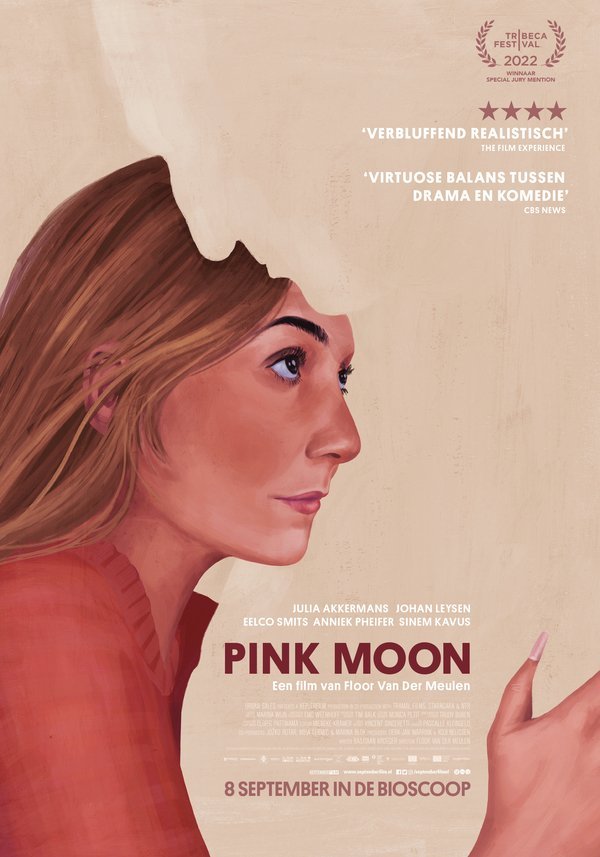Pink Moon
Damir Škrjanec
The feature-length debut of Dutch director Floor van der Meulen, through the prism of family relations, challenges the issue of personal freedoms, the limits to which they can go without being detrimental to the people with whom we are connected. During the family dinner, father Jan announces to the children that he has decided to kill himself. Why would he want to do that? Does he have a right to do that, how this will affect his children? Where does personal freedom end and responsibility for others begin?
Although the topic of the Pink Moon is difficult, even a bit morbid, the film successfully balances on the border of comic and tragic. This is partly due to the musical background imbued with contemporary, soft music that seems to be devoid of excess drama, and leaves the impression that everything is alright. On the other hand, the characters let us know through their behavior that nothing is alright.
Young, single daughter Iris reacts very violently to her father's announcement and is ready to do anything, literally anything, to change his mind. This reaction initially looks like an expression of love, but as the plot unfolds, we learn that it may not be so. Iris is unhappy, her life is chaotic, and she searches, but fails to find meaning. The father figure seems to be the only stable point in her life, so in this light her reactions take on a new dimension and are more an expression of need than love.
Unlike his sister, Ivan peacefully accepts his father's decision at first, finding comfort in his own family. His peace and coldness are a little creepy. As the film's plot progresses, his defense loosens, culminating in a scene in which he cries uncontrollably and is unable to move. This gives him a softer trait, while emphasizing the difference in comparison to his sister. He loves and respects his father, but he doesn't need him as much as Iris does.
The behavior of Iris and Ivan opens up a space within which we can judge the idea of suicide. Depending on the angle of view and the situation in life, the father's act may or may not be acceptable. It's easy to take sides, but the director made sure none of the sides are too comfortable to take. The character of the father inevitably entails the question - why does he not want to live? He tries to explain it, but he fails to convince his daughter or me as a spectator. His arguments are empty, especially when we compare how clear and logical he is in other situations. There's still doubt, why won't he tell the truth? The solution may be in front of us all the time, so close that we don't even notice it. The father is healthy, relatively wealthy, lives an active and seemingly pleasant life. Although a little cold, his relationship with his children is pretty good. The only thing that is really missing is meaning, a goal that you could devote yourself to. If that's reason enough to commit suicide, we have to figure it out for ourselves.
Apart from the personal level, the film can also be seen as a critique of modern Western society. We've built a civilization of abundance, we're trying to act rationally, but we may be moving away from our biological heritage, from basic human emotions. This is well illustrated by a 14,000-year-old femur found in the Red Deer archaeological site in southern China. It is notable because traces of fractures and remodeling were found on it, the bone tells the story of a prehistoric family who decided to take care of their injured father. They carried him to safety, fed him and guarded him until his leg healed. Community's concern for the individual is considered one of the first signs of civilization. Can we today, a thousand generations later, let that same father just go away? At this point, we don't have a clear answer to that question. Personal freedoms are a great achievement, we have the task of shaping them and aligning them with the needs of the community. Pink Moon in this sense makes us think, it encourages us to explore and try to understand the nature of our own humanity.

